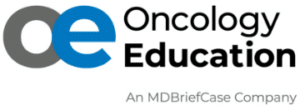EHA HIGHLIGHTS 2024 – MULTIPLE MYELOMA ROUNDTABLE DISCUSSION: >6-YEAR UPDATE OF CASSIOPEIA

Please enter your username or email address. You will receive an email message to log in.
Chair
Dr. Donna Reece
Panelists
Dr. Darrell White
Dr. Maria Victoria Mateos Manteca
This program has been made possible through unrestricted support from Sanofi.
Studies/trials discussed:
- Daratumumab Plus Bortezomib, Thalidomide, and Dexamethasone or D-VTD followed by DARA maintenance and transplant eligible newly diagnosed multiple myeloma patients: A six year and greater update of CASSIOPEIA.
Abstract of the paper or summary description of the presentation:
Background: Bortezomib, thalidomide, and dexamethasone (VTd) plus autologous stem-cell transplantation is standard treatment in Europe for transplant-eligible patients with newly diagnosed multiple myeloma. We evaluated whether the addition of daratumumab to VTd before and after autologous stem-cell transplantation would improve stringent complete response rate in patients with newly diagnosed multiple myeloma.
Methods: In this two-part, randomised, open-label, phase 3 CASSIOPEIA trial, we recruited transplant-eligible patients with newly diagnosed multiple myeloma at 111 European sites. Patients were randomly assigned (1:1) to receive four pre-transplant induction and two post-transplant consolidation cycles of VTd alone (VTd group) or in combination with daratumumab (D-VTd group). The primary endpoint of part 1 was stringent complete response assessed 100 days after transplantation. Part 2 (maintenance) is ongoing. The trial is registered with ClinicalTrials.gov, number NCT02541383.
Findings: Between Sept 22, 2015, and Aug 1, 2017, 1085 patients were enrolled at 111 European sites and were randomly assigned to the D-VTd group (n=543) or the VTd group (n=542). At day 100 after transplantation, 157 (29%) of 543 patients in the D-VTd group and 110 (20%) of 542 patients in the VTd group in the intention-to-treat population had achieved a stringent complete response (odds ratio 1·60, 95% CI 1·21-2·12, p=0·0010). 211 (39%) patients in the D-VTd group versus 141 (26%) in the VTd group achieved a complete response or better, and 346 (64%) of 543 versus 236 (44%) of 542 achieved minimal residual disease-negativity (10-5 sensitivity threshold, assessed by multiparametric flow cytometry; both p<0·0001). Median progression-free survival from first randomisation was not reached in either group (hazard ratio 0·47, 95% CI 0·33-0·67, p<0·0001). 46 deaths on study were observed (14 vs 32, 0·43, 95% CI 0·23-0·80). The most common grade 3 or 4 adverse events were neutropenia (28% vs 15%), lymphopenia (17% vs 10%), and stomatitis (13% vs 16%). Interpretation: D-VTd before and after autologous stem-cell transplantation improved depth of response and progression-free survival with acceptable safety. CASSIOPEIA is the first study showing the clinical benefit of daratumumab plus standard of care in transplant-eligible patients with newly diagnosed multiple myeloma. Funding: The Intergroupe Francophone du Myélome and Dutch-Belgian Cooperative Trial Group for Hematology Oncology.


